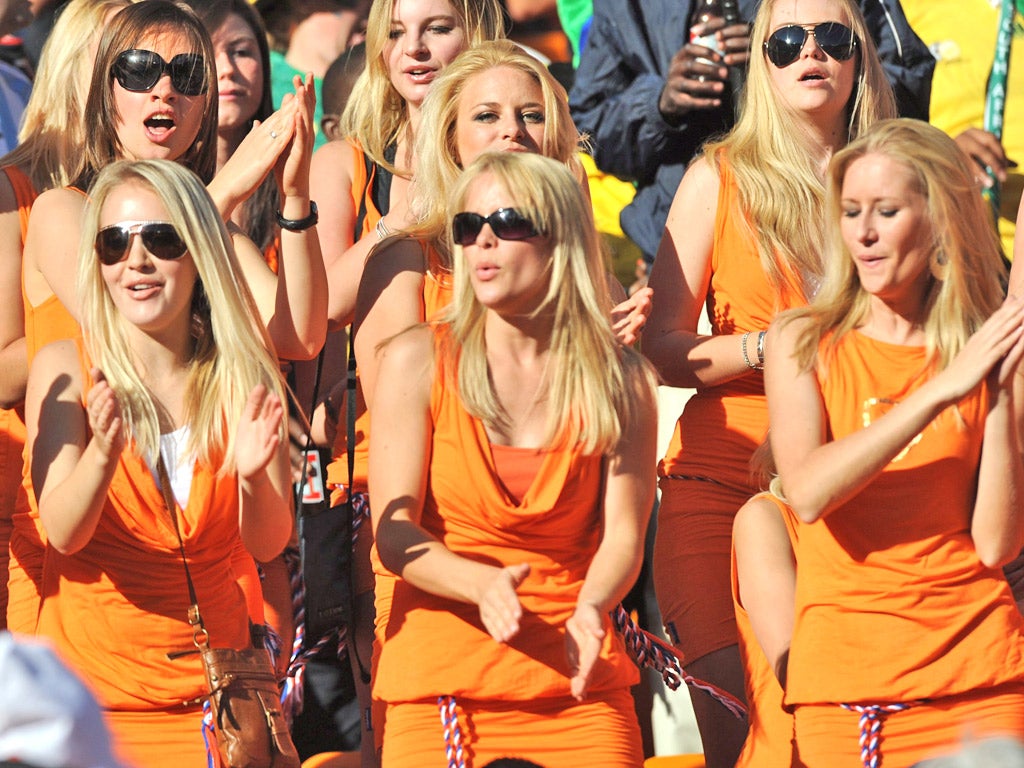The Olympic law: guilty until proven innocent
The new rules would also apply to anyone who owns the land where offences are thought to have taken place

Your support helps us to tell the story
From reproductive rights to climate change to Big Tech, The Independent is on the ground when the story is developing. Whether it's investigating the financials of Elon Musk's pro-Trump PAC or producing our latest documentary, 'The A Word', which shines a light on the American women fighting for reproductive rights, we know how important it is to parse out the facts from the messaging.
At such a critical moment in US history, we need reporters on the ground. Your donation allows us to keep sending journalists to speak to both sides of the story.
The Independent is trusted by Americans across the entire political spectrum. And unlike many other quality news outlets, we choose not to lock Americans out of our reporting and analysis with paywalls. We believe quality journalism should be available to everyone, paid for by those who can afford it.
Your support makes all the difference.One of the fundamental principles of European justice will be temporarily suspended during next year’s London Olympics to protect the commercial interests of sponsors, if Government proposals are accepted by Parliament later this year.
Under the plans, anyone suspected of so-called “ambush marketing” or unauthorised trading near the Olympic Park during the Games would be presumed guilty until proven innocent – a clear contradiction of the European Convention on Human Rights.
The Department for Culture, Media and Sport (DCMS) believes the move is justified to facilitate the staging of the Games, which it describes as a “once-in-a-lifetime occasion”.
Regulations proposed by the DCMS state that an interference with the right to be presumed innocent “will be justified” as long as it is confined within reasonable limits.
The proposals are designed to clamp down on ambush marketing, where advertisers informally associate themselves with a particular event without paying a sponsorship fee.
But market traders described the proposals as “draconian” and called on the Government to help people who will “make their living operating legitimate market stalls long after the Olympics have gone”.
Graham Wilson, a spokesman for the National Association of British Market Authorities, said: “We need to make sure that those who do trade normally and legally are not prejudicially affected. Perhaps the Olympics organisers would not use the word ‘draconian’, but it is a word I would use.”
He added that severe penalties were “quite right” for people trading illegally, but that there was “some concern about how the measures would affect regular, legitimate traders” in east London.
He said: “There is a responsibility on both sides, but there is clearly an issue over how existing traders are going to be restricted, there is also an issue over the apparently draconian way in which potentially illegal traders will be dealt with.”
The new rules would also apply to anyone who owns the land where offences are thought to have taken place. Senior company executives would be held responsible for the actions of their employees, unless they can prove they either knew nothing about it or had tried to prevent it from happening.
Nick Johnson, a partner at London law firm Osborne Clarke, said he was “surprised” by the proposals, which he said were “open to grave error”.
He said: “If they go ahead as they are currently drafted, we will see a flurry of businesses putting in place regulations against ambush marketing to protect themselves. You can see why the Government and the Olympics organising bodies would like to have this reversal of the burden of proof in place, because it allows them to act quickly in the heat of the moment.”
He continued: “The Government says it should be easy for anyone to prove their innocence but, of course, it is very difficult to prove you were not aware that something was happening. For the Government to blithely give this assessment is surprising.”
The proposals provide specific regulations to be used alongside the 2006 Olympics Act, which already outlaws unauthorised commercial activity at the Games. It says zones extending “a few hundred metres from a venue’s perimeter”, in which the measures would apply, should be drawn up.
A DCMS spokesman said: “History tells us that the Olympic and Paralympic Games attracts ambush marketing and unauthorised commercial exploitation. Reversing the burden of proof is a legitimate way of ensuring that the law is complied with and acts a powerful deterrent. In practice, the prosecution will still be required to provide the main elements of the offence and prove that the regulations have been broken. In addition, the individual has a defence and can escape liability if they prove that they had no knowledge of the activity or they took reasonable steps to prevent it happening. The proposed regulations are fully compliant with the law.”
The London 2012 Organising Committee refused to comment.
What is ambush marketing?
At last year's World Cup, two women were arrested on suspicion of ambush marketing for Bavaria beer, after 36 ladies in orange minidresses appeared in the stands at a Netherlands match. The women were ejected from the ground. A settlement was reached out of court.
Join our commenting forum
Join thought-provoking conversations, follow other Independent readers and see their replies
Comments